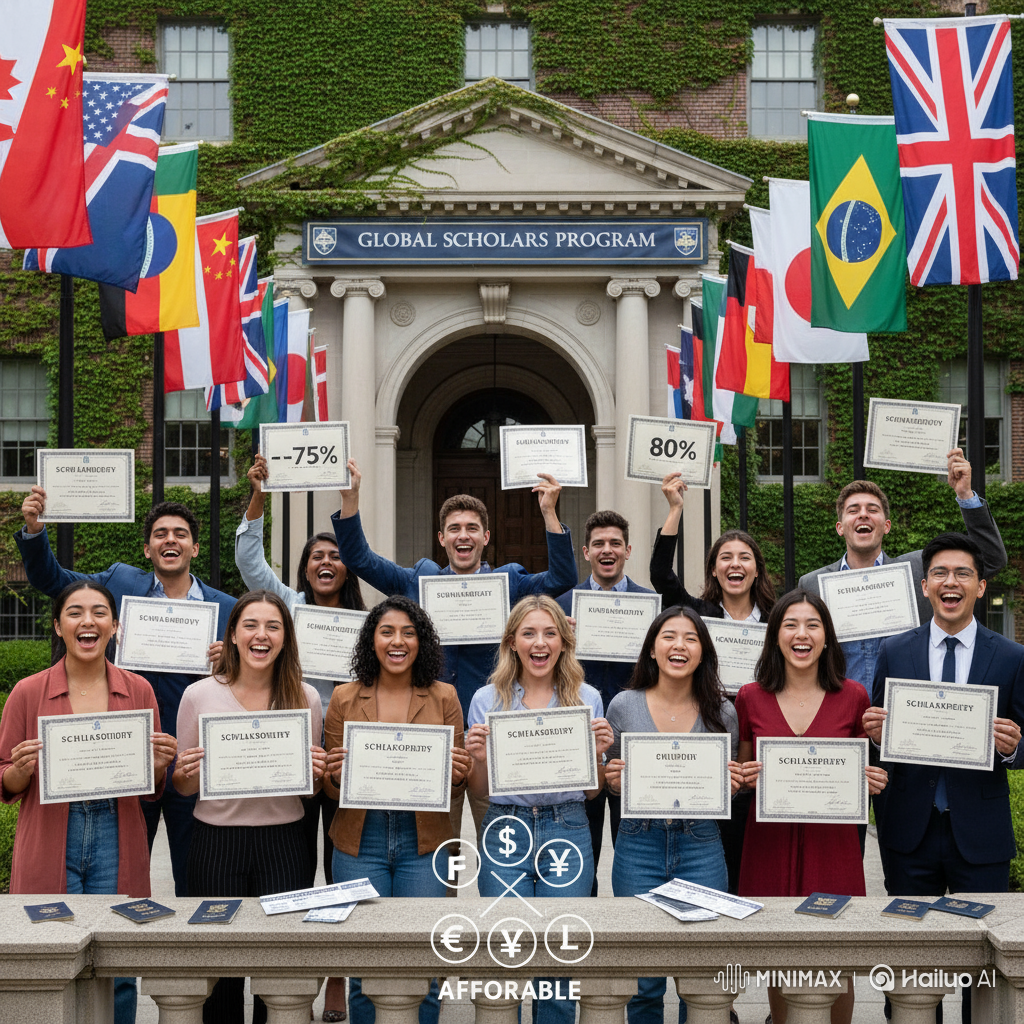Understanding the Importance of Scholarship Interviews
The scholarship interview is often the final step of the selection process and can determine whether an applicant receives funding. While applications and essays show academic and extracurricular achievements, the interview allows committees to assess communication skills, motivation, and personal values.
For many students, this stage can feel intimidating. However, understanding what interviewers are looking for and preparing strategically can make the difference between a good and an exceptional performance. The following guide covers preparation methods, typical questions, mistakes to avoid, and best practices for success.
Objectives of a Scholarship Interview
Scholarship interviews serve several purposes beyond evaluating a candidate’s résumé. Committees use them to:
- Assess fit with the scholarship’s mission – whether the applicant’s goals align with the organization’s values.
- Evaluate communication and interpersonal skills – the ability to express ideas clearly and professionally.
- Understand personal motivation – what drives the student to pursue specific studies or causes.
- Measure confidence and maturity – indicators of how well the applicant will represent the scholarship community.
Interviews can take place in person, online, or via phone, and the approach remains largely the same: clarity, honesty, and preparation.
How to Prepare for a Scholarship Interview
1. Research the Organization
Before the interview, study the sponsoring organization thoroughly. Review its mission statement, past scholarship recipients, and current initiatives. Understanding what the institution values allows you to tailor your responses effectively. For instance, if a foundation supports environmental studies, prepare to discuss sustainability or related projects.
2. Review Your Application Materials
Every statement in your application and essay is potential material for interview questions. Be ready to discuss your academic achievements, extracurricular activities, and goals. Interviewers often ask follow-ups such as “Tell me more about this project” or “What inspired this essay topic?”
3. Practice with Mock Interviews
Conduct practice sessions with a mentor, teacher, or friend. Rehearsing out loud helps build confidence and refine answers. Use a timer to maintain concise responses (1–2 minutes per question). Simulate both formal and conversational tones, as different interviewers may use different approaches.
4. Prepare Key Talking Points
Identify three main ideas you want the committee to remember about you — for example, academic focus, leadership experience, and long-term goals. Integrate these naturally into your answers rather than listing them directly.
5. Dress and Set Up Professionally
For in-person interviews, choose attire appropriate for an academic or professional setting. For online interviews, ensure proper lighting, a neutral background, and a reliable internet connection. First impressions carry weight.
Common Scholarship Interview Questions
Although each program has its own format, certain questions appear frequently. Preparing for these helps you structure thoughtful and relevant answers.
| Question | Purpose |
|---|---|
| Tell us about yourself. | To assess communication skills and summarize achievements concisely. |
| Why did you choose your field of study? | To understand academic motivation and alignment with goals. |
| How will this scholarship help you achieve your objectives? | To measure clarity of purpose and practical planning. |
| Describe a challenge you have faced and how you overcame it. | To evaluate problem-solving and resilience. |
| What are your long-term goals? | To assess ambition and connection to societal or community impact. |
| How do you contribute to your community or campus? | To gauge leadership and civic engagement. |
| Why should we select you? | To identify self-awareness and confidence without arrogance. |
| Who has influenced you the most? | To understand values and sources of inspiration. |
Structuring Your Answers
Use the STAR method (Situation, Task, Action, Result) to build concise and clear responses:
- Situation: Briefly describe context.
- Task: Define your role or objective.
- Action: Explain what you did.
- Result: Summarize the outcome and what you learned.
This approach keeps answers focused and memorable.
Common Mistakes to Avoid
Even strong candidates can lose points due to preventable errors. The following mistakes are the most common:
- Lack of preparation: Arriving without researching the organization or reviewing the application.
- Overly rehearsed responses: Sounding memorized rather than genuine.
- Speaking too fast or too slowly: Clear pacing demonstrates composure.
- Negative comments about other institutions or individuals: Maintain professionalism.
- Ignoring the time limit: Keep answers concise to allow more questions.
- Failing to ask questions at the end: Always prepare one or two thoughtful questions for the interviewer.
A professional and calm attitude reflects reliability and maturity — traits that scholarship committees value highly.
How to Make a Strong Impression
1. Start with Confidence
Begin with a firm handshake (if in person), a polite greeting, and a brief expression of gratitude for the opportunity. Online, make eye contact through the camera and maintain an upright posture.
2. Communicate with Clarity
Use structured, direct sentences. Avoid jargon or overly academic language; aim for clarity rather than complexity. Speak with enthusiasm but remain composed.
3. Demonstrate Awareness and Purpose
Explain not only what you plan to study but also why it matters — how your academic path connects to real-world problems or community needs. Demonstrating awareness of the scholarship’s mission strengthens your case.
4. End on a Positive Note
When the interview concludes, thank the panel and restate your appreciation for the opportunity. A brief, sincere closing statement leaves a professional final impression.
What to Do After the Interview
Following up after the interview reinforces professionalism and interest. Send a short thank-you email within 24–48 hours. Include:
- Gratitude for their time.
- One sentence reaffirming your enthusiasm for the scholarship.
- A polite closing, such as “I look forward to hearing from you.”
Avoid repeated follow-ups unless specifically requested.
FAQs About Scholarship Interviews
How long do scholarship interviews usually last?
Most last between 20 and 40 minutes, depending on the program and number of interviewers.
How many people are typically on the panel?
Usually 2–5 interviewers, often including faculty, alumni, or program administrators.
Is it acceptable to take notes during the interview?
For in-person settings, it’s best to avoid note-taking. Online, keeping a brief outline off-screen for reference is acceptable if it doesn’t interrupt flow.
Can I ask questions at the end?
Yes, and you should. It shows engagement and curiosity. Ask about program goals, mentoring opportunities, or alumni success stories.
Do interviews differ for graduate and undergraduate scholarships?
Graduate interviews often emphasize research goals, while undergraduate ones focus on leadership potential and personal development.
Conclusion
Scholarship interviews combine preparation, clarity, and authenticity. The process tests not only academic qualifications but also communication, motivation, and self-awareness. Candidates who research thoroughly, anticipate questions, and express their goals confidently stand out naturally.
Approaching the interview as a professional conversation rather than an exam creates a more relaxed, genuine tone. With structured preparation and calm delivery, any student can present themselves as a deserving and confident candidat.

